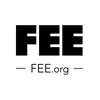In the past month, FEE has celebrated our founder Leonard Read and his most famous written work, “I, Pencil” with a series of ten new essays, linked below, by some of our top writers on subjects ranging from education to self-improvement to interest rates. December 2018 marked the 60th anniversary of this important essay’s first publication.
“I, Pencil” may not be a lengthy treatise spanning hundreds of pages, but it didn’t need to be. Its powerful message would not have been made any more profound by the addition of footnotes or bibliographies, charts or graphs. If anything, those theoretical additions would have detracted from the core idea.
The simple, beautiful message of “I, Pencil”—no one knows how to make a pencil—might seem ridiculous, at first. “What do you mean, no one knows how to make a pencil? I have one right here!” But it remains true. No single person knows how to make a pencil from start to finish, yet they exist. You could pop down to your favorite office supplies purveyor today and buy a gross of them for about $10. And that tiny miracle of economics is still just as important today as it was 60 years ago.
"I, Pencil's" Faith in Freedom
by Lawrence W. Reed
Sixty years ago this month—December 1958—a now-classic and well-known essay debuted before the world. It was titled "I, Pencil."
In this essay, FEE founder Leonard E. Read identifies “faith in free people” as more than simply important to freedom. He identifies it as indispensable. No faith, no freedom. Can this be literally true or was he exaggerating?
How "I, Pencil" Changed My Life
by Tricia Beck-Peter
I was twenty years old, and I thought I understood everything. In the course of a two-hour flight, everything I understood about myself, the world, and my place in it fell to dust. Why? Because of a ten-page essay: "I, Pencil."
"I, Pencil" Can Help You Downsize Your Inner Central Planner
by Barry Brownstein
As we allow intelligence, love, and peace to flow, the Universal Power that creates a pencil will create wonders in our lives.
What Educators Can Learn from "I, Pencil"
by Kerry McDonald
If no single person or centralized group of people can produce a lowly pencil, then how could we believe that a single person or group could produce something so magnificent as an educated human?
"I, Pencil" and the Vital Message of "I Don't Know"
by Gary M. Galles
Leonard Read argued powerfully that no one can possibly know the precise results of the energy, insights, and innovations that would be unleashed by reintroducing freedom in the place of statism. Therefore, it is a fool’s errand to try to do so, which would put an impossible burden of proof on someone trying to advance freedom.
Leonard Read, the Man
by Lawrence W. Reed
The fullest appreciation of Leonard Read’s “I, Pencil” derives from this understanding: The gentle, persuasive, and irresistible appeal of the essay is a direct reflection of the personality of its author. What you see in the essay is what you got in the man himself.
The Biggest Lesson of "I, Pencil"
by Gary M. Galles
"The knowledge freedom makes available to all of us is unimaginably greater than the knowledge that can issue from those who would rule others."
How an Entrepreneurial Mindset Can Help Save Freedom
by Barry Brownstein
Since entrepreneurial insight begins in the spiritual realm, what inhibits imagination and creativity deadens the spiritual. Echoing the wisdom in “I, Pencil,” Read writes, “And it seems just as obvious that all creative activities, without exception, should be left to men acting freely, privately, cooperatively, competitively, voluntarily… Physical force—forcible interferences—can only deaden, never enliven, the spiritual.”
Milton Friedman Reveals the Humbling Truth of “I, Pencil” in Just Two Minutes
by Jon Miltimore
Echoing Leonard Read's humility in the timeless work "I, Pencil," Milton Friedman explains the complexity of the pencil and spontaneous order in this two-minute clip.
I, Interest Rate
by Tom Mullen
It is often said, “Don’t kill the messenger,” but that is precisely what everyone seems to want to do in my case. I’m not sure why because the news I bring is neither good nor bad. It is simply the truth; and it is a very sad day when telling the truth can foster such ill will. There are some who go so far as to declare my very existence wicked simply for providing information people use to engage in a specific type of voluntary exchange that, although of immense benefit to society, has somehow acquired an unsavory reputation.
As you may have surmised, I am the rate of interest, the price difference between present goods and future goods.










